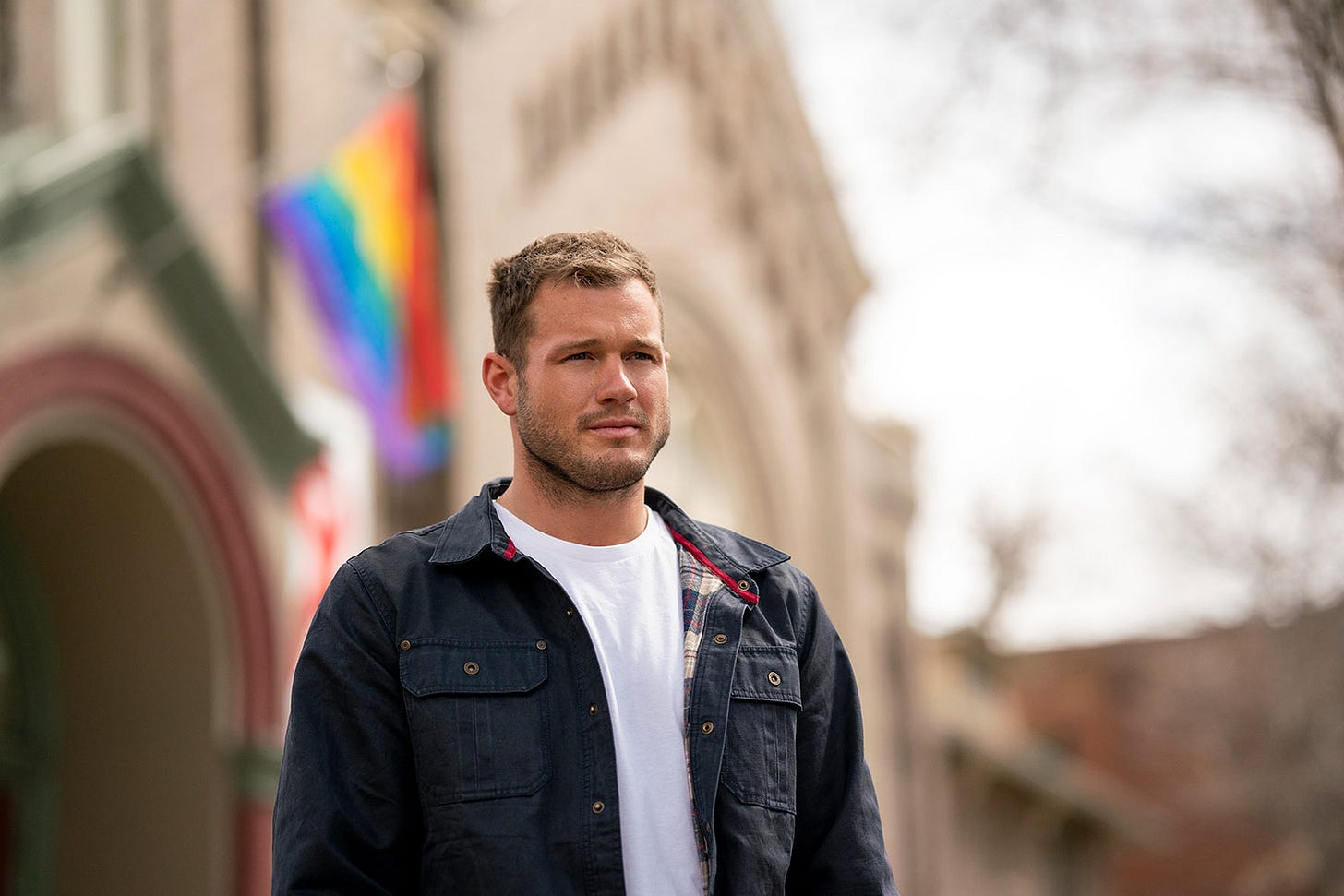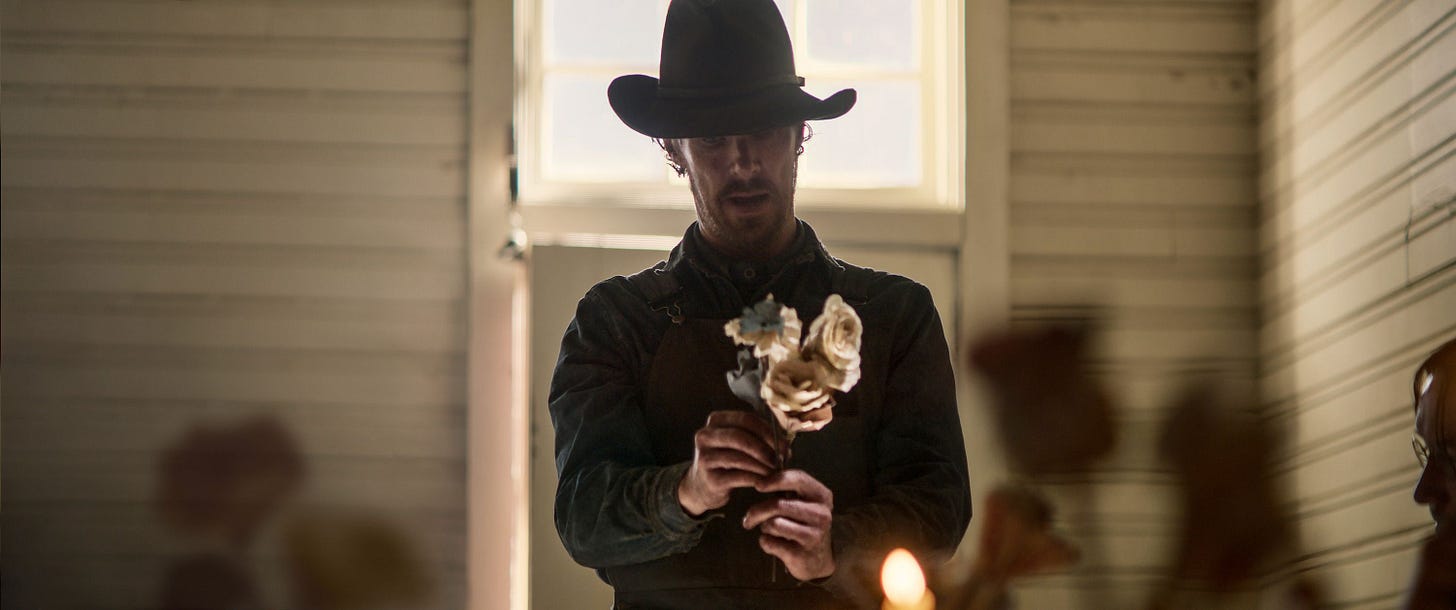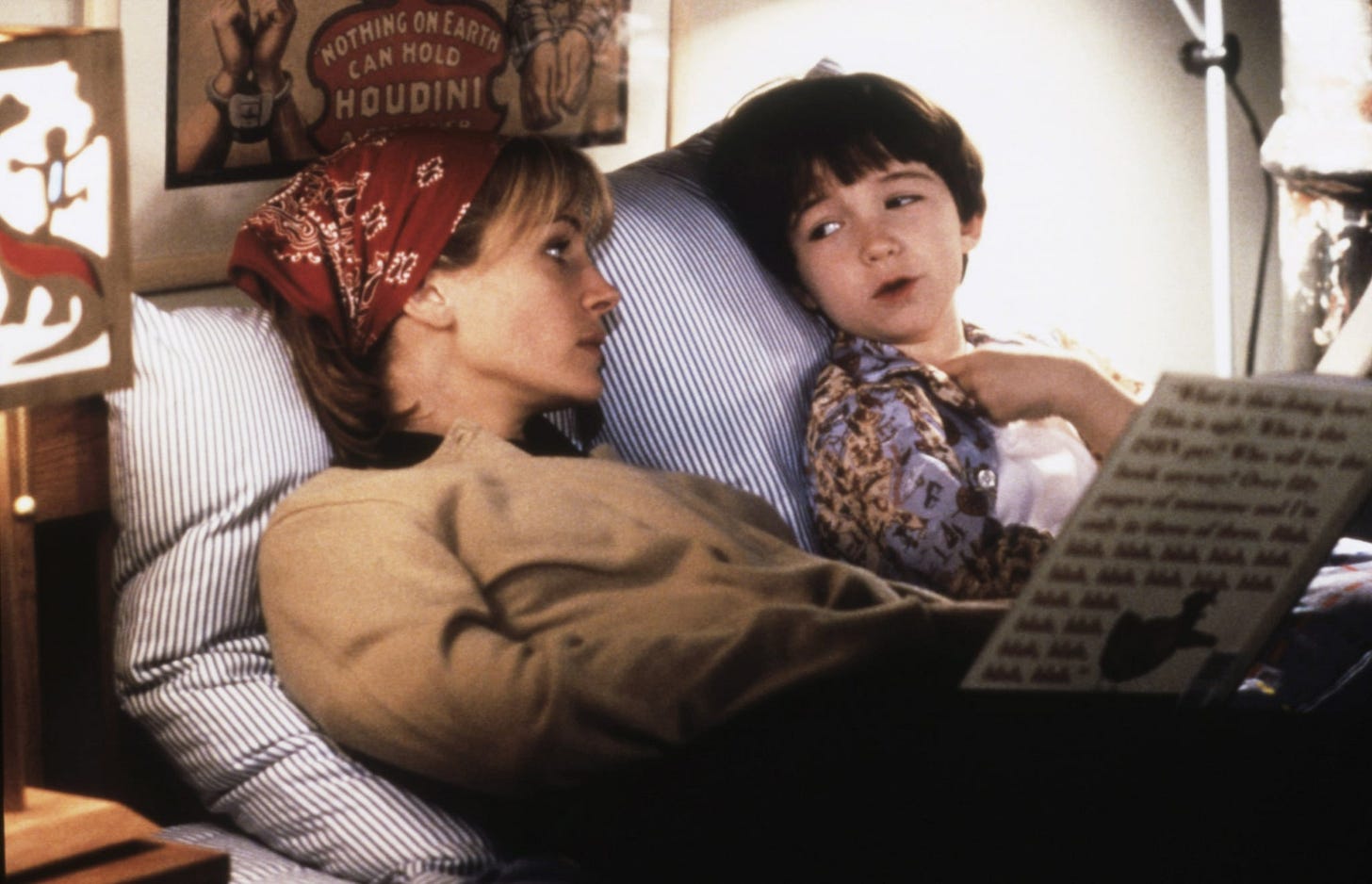Phew, these past two weeks flew by. Let’s catch up, readers.
On tap this episode we have the mid-season return of an adolescent glamour spectacle, the seasonal return of a 'holi-dating lark, and two end-of-year award contenders in cinema (among others).
Gossip Girl (Mid-Season Premiere)
HBOMax - Comedy - Coming of Age
Synopsis
After the renaissance of a social media panopticon, an enclave of hyper-wealthy teenagers on the Upper East Side of Manhattan must learn how to interface their once private decisions with public eyes.
My take
Back in July this year, the very first episode of the Gossip Girl revival on HBOMax spun a new look for the once quite popular series, a look that I found captivatingly transformative. Not only had the superficial context of the show changed to better fit our present times, but also had the dynamic at the heart of the show changed to insinuate the life of the viewer directly where it had been all along: complicit with the intoxicating mix of fantasy and enmity on display.
When the camera introduced us to the cascading tableaux of morning routines in the revival’s opening montage — choreographed exquisitely, by the way, to the entrancing “All My Girls Like to Fight” by Hope Tala (2020) — who didn’t notice the uncloaked inclusion of the titular narrator’s identity, once a series-long mystery? And who, noticing that inclusion, didn’t feel compelled by knowing then that the show was thinking, as we’ve always been, “excess” as much as “opulence”? Personally, this introduction, I thought, would seal the deal for me. It put me so clearly in mind of the one perfectly choreographed scene from the end of an early first season episode of the original series’ run, the scene I credit with hooking me onto the show thirteen years ago, that I definitely thought, “Wow, they’ve nailed this new one.”
That perfect impression has endured, steaming my viewership as it had the first time around, through missteps and shoddy reversions, melodrama and substandard acting, and simply sometimes unbelievable plot lines (always despite the look and feel of the show) until now. I greeted these newly available episodes still with hope that the show could be that good once again, but sadly I am here to tell you, that good may never be.
While the show now in its seventh, eighth, and ninth episodes aims to right itself from the dizzying convolutions its writers twisted its storylines into by the end of episode 6 (the mid-season close) and thereby shrug off the weight of some of its poorest narrative choices, the effect the show achieves nevertheless returns more to almost parodic absurdity, without hewing close to that fine slick line balancing glamor and its criticism. Characters bob and weave, one moment in and then the next out, of romantic and political entanglements that aren’t as much adding to as crowding onto the plot. Where the straightforward and clear proposed thesis of the show from its inceptive episode now is is a mystery.
If the writers’ room can’t whip this melodramatic modernized Gucci ad from 1995 into a shape fit for viewing, I’m not sure how much longer I’m willing to hold out the hope I once had for a bastion inheritor of thc feverishly fascinating cultural theme introduced 300 years ago by de Laclos.
Temperature check
Cold (and sludging)
12 Dates of Christmas (Season 2)
HBOMax - Reality Competition - Dating / Romance
Synopsis
Three single adults each manage a revolving door of potential partners, in an attempt to find love in time to bring it home for Christmas.
My take
Everyone’s favorite Christmas-themed dating show returns, with a second season that had me thanking casting for screening far better than it seemed to be able to in Season One... Without spoiling any of the liaïsons or the intrigue among the three romantic leads and their many dates, I can confidently say that this time around at least none of the leads is so awfully self-unaware that their romantic decisions make no sense or, worse (as with one particular contestant last season), are actively contrary to their stated purpose.
Steam up your own private pot of cocoa, slip under that snow-themed blanket, and prepare for a confectionary delight, cuisine to any palate with a taste for those curious hors d’oeuvres that are the first pregnant moments of any pair of potential mates, on repeated serve in this entertaining holi-dating series.
Temperature check
Tepid (unless your hearth pre-heats as mine does for reality romance)
8-bit Christmas
HBOMax - Comedy - Nostalgia
Synopsis
A single father attempts to regail his tween-aged daughter with the saga of his foible-ridden attempts at acquiring a Nintendo Entertainment System in 1985.
My take
A paper-thin “comedy” written for the “family” audience (read: millennial parents and their maturing children, apparently), 8-bit Christmas promises a good time à la Jumanji (Johnston [dir.], Hensleigh, Taylor, & Strain [wri.], 1995), its 2017 reboot (Kasdan [dir.], McKenna, Sommers, Rosenberg, & Pinkner [wri.]), Home Alone (Columbus [dir.] & Hughes [wri.], 1990), and A Christmas Story (Clark [dir.], Shepherd, Brown, & Clark [wri.], 1983) but delivers a weak dilution of that individually tonic mixture that smacks more of filler seasoning than genuine yums. Neil Patrick Harris narrates this watery vintage, washing through what could have been a charming tale about a beloved and now iconic product of design, computing, and entertainment for a millennial crew with mawkish false appreciation.
Watch only if you need vaguely nostalgic background entertainment while you’re decking your halls.
Temperature check
Cold
Coming Out Colton
Netflix - Reality - Coming Out
Synopsis
A former NFL player and reality TV personality chooses to publicly air the events surrounding his decision to come out to his family, his friends, and the American media.
My take
Because it didn’t exist for so long, a television show focussing on a gay protagonist — especially a gay protagonist coming out — is still almost required reading for any gay millennial or older. Hoping both to see how even something vaguely approaching an otherwise unspoken part of oneself is being represented in the mass culture and to perhaps even learn about or from other approaches to very personal struggles, any such audience member (for better or worse) is likely to tune into a show like this one — and perhaps this one more than any other, because of (1) the “high profile” of its protagonist in popular and actively heteronormative contexts (i.e., the National Football League and the reality competition series The Bachelor [Fleiss (creator), 2002 - on-going]) and (2) the conventionally attractive and white body he inhabits. That level of interest assumed, we can now ask an entirely different question: whether tuning in — or even crediting Coming Out Colton with any attention at all — be worthwhile.
To try to answer that latter question for myself and for you, readers, I want to first make some acknowledgements.
Coming Out Colton purports to be pure documentary, showing unfiltered and uneditorialized the true nature of the events surrounding Underwood’s public coming out on Good Morning America (Perris, Baker, & Arledge [creators], 1975 - on-going) in April 2021.
More than show these events, the show attempts to set them in a proper context, by assembling relevant queer histories (e.g., a visit to The Stonewall Inn in New York City; a round table with other former NFL players who have since or, in one notable case, had before their time in the NFL come out as gay) and relevant personal contentions (mainly, religious belief, belonging, and practice but also — and seemingly as fleetingly as possible — past restraining orders and public embarrassments) around that coming out.
To act almost as a docent would for a museum visitor, the show employs another out gay athlete, Gus Kenworthy, as Colton’s (for lack of a better phrase) ‘gay guide.’ The fact that Gus, like Colton, is another conventionally attractive white ‘masc.’ gay is, I’m sure, purely coincidence….
Putting these three pieces together, the show lands in a rather awkward place, where obvious agenda conflict with stated intentions.
While the show purports to be unfiltered documentary, almost innocently providing the audience intimate access out of charity and community to sacred times and spaces in this “celebrity’s” recent life, the show like any other reality show focussed on a “personality” is clearly a forethought of its makers, intending to televise and consequently monetize the footage it presents at the very least indirectly by endearing and popularizing its protagonist in the hearts and minds of the viewers at home. (Why else would Underwood and his management team have hired a full production crew to record his life BEFORE coming out to his family, no less the viewership of Good Morning America? Setting an example for others struggling with coming out or with their identities in general doesn’t require a literally self-centered docu-series in 1080p.)
The underlying belief that the viewing public could be so readily emotionally manipulated for Underwood’s sociocultural, if not directly financial, benefit stings all the more when the show attempts to patch it with obviously confounded yet superficially well-intended segments, drawing on real and uncelebrated queer history. Take the early round table with other gay men who have played in the NFL. It was genuinely fascinating to see those men come together, to share their individual stories and experiences suffering through, pushing against, and ultimately being ousted from an aggressively heteronormative part of our shared American culture. Perhaps because of my age and perhaps because of my inattention to the NFL in general, I was unaware of two of the three men the show invited to speak to Underwood in that forum. Because they each came from different eras of the game and consequently represented different eras of our shared culture, hearing their stories felt like attending an amazing sociological case study of how culture shapes and shaves the individuals it touches. I sincerely appreciate Coming Out Colton for including that context. At the same time, the third man in the group, Michael Sam, remarked quietly by his presence alone on the continuing injustice of that same culture, an injustice patently manifest in the very existence of its own medium: the very same Coming Out Colton. Namely, why elevate Underwood with this forum and this platform, when Sam as an out black player from the very same NFL class has arguably been a better example for our culture than Underwood at exactly what Coming Out Colton claims to be all about: having the courage to live authentically despite the sometimes scathing public eye? But then, I think, I already know the answer to that question.
Where the outright salesmanship of this particular slice of queer American Wonder Bread flagrantly shows its hand is actually not the subtle or even at times not so subtle product placement reïfying the true intent of this miniseries, but instead the role of Kenworthy as Underwood’s gay guide. Peppering the show with the ‘wisdom’ of his experience, Kenworthy does little to conceal the fact that he’s really there just to have a good time and make sure everyone else knows that he can deliver one. Sure, the man is an Olympic athlete who has lived out in the public eye for a few years, but so is Johnny Weir. What makes Kenworthy the better choice than Weir or any other out athlete with years of experience (e.g., Major League Soccer’s Collin Martin, tennis’ Billie Jean King)? The show even actively admits, Kenworthy’s recent résumé consists primarily of attempts at being a ‘thirst trap’ on Instagram. There is little about such a choice that doesn’t reek of designing and selling coming out in the same way Calvin Klein designs and sells men’s underwear: a packaged brag to and about the people you’ve slept with; and Kenworthy actively follows that line.
At this point, I honestly feel as if I’ve already spent more than the due number of lines to this show. It’s a marketing vehicle — plain and simple — and, anyone who wants to watch it for its attractive central characters, by all means do so — but with the clear understanding of why you’re there and what you’re being subjected to. I am not curious about whether Underwood’s social image is rehabilitated through his emotional pleas in this show, but I am hopeful that the impression it has left on mainstream culture’s understanding of coming out and being out in sports or in our culture at large is restricted to its few finer moments, underscoring others’ struggles for equality so that Underwood could throw his own parade.
Temperature check
Cold
Bruised
Netflix - Drama - Fighter’s Comeback
Synopsis
Once a Mixed Martial Arts (MMA) champion, a reluctant mother must find the inner strength to pull her life up from its downward inertia.
My take
Two powerhouse performances foreground this gritty fighter’s drama, starring and directed by Emmy and Oscar winner Halle Berry. Other than Berry’s traumatized lead, Tony winner Adriane Lenox’s staunch support as Berry’s character’s mother is the noteworthy part of this otherwise by-the-book comeback story. Its distinction from cultural siblings Million Dollar Baby (Eastwood [dir.] & Haggis [wri.], 2004) and Warrior (O’Connor [dir. & wri.], Tambakis [wri.], & Dorfman [wri.], 2011) is only in its gruesome pacing through the physical trials of training and fighting. Blood spills thick and heavy, as do tears, into an otherwise highly regular vessel. Await the predictable pay-off with appropriate receipts, pre-paid.
Temperature check
Tepid
The Power of the Dog
Netflix - Drama - Western
Synopsis
The intelligent son of a wilting belle catches the crossfire between her unassuming admirer and his acerbic brother, who exercises cruelty for sport.
My take
Writer-directrix Jane Campion returns to our screens with her first film since 2009’s Bright Star, and wow are we glad that she’s returned. The Power of the Dog is a haunting cultural and visual descendant of the Coen brothers’ epically eerie (2007) No Country for Old Men, P. T. Anderson’s stark (2007) There Will Be Blood, and Ang Lee’s melancholy (2005) Brokeback Mountain and merits being named in their company, excellent each in its own way all.
Campion smartly directs with purpose: letting the actors drive the show when it’s their turn to carry the story, but keeping a stable hand on the wheel especially at all other times, when the scenery and the land itself describe a passage. She couldn’t achieve this level of storytelling without Ari Wegner’s elegantly susurrous cinematography and her sound department’s complementary design. The plains whisper to the viewer as much as the characters, and she savagely demonstrates how those whispers can either be a comfort or spell a curse.
Dunst and Cumberbatch turn in remarkable performances. I was rapt.
Temperature check
Hot
Retrospective
Stepmom
HBOMax - Dramedy - Self-discovery
Synopsis
The younger romantic interest of a workaholic divorcé must contend with the impossibly virtuous standards of his ex-wife in helping rear their two children.
My take
It’s both hard to believe and hard not to believe that John Williams scored this often haphazard pastiche of arguments masquerading as a Mike-Nichols-esque drama. The problem with Stepmom, unlike so many other movies in general, is that it never slows down; it never breathes; it’s just one cannon launch from set-up through obstacles to finish. One acrimoniously backdropped sing-along does not a summer respite make.
Looking back on it now, I wonder whether the film, like Doubt (Shanley, 2008), may have been a better play acted among only the three central adults. Isolating them from the children, which at best temporarily distract, could have helped dig deeper into the individual emotional lives of the characters and the dynamics among them. Ed Harris, for one, could have had a meatier role.
And I don’t mean the emotionally manipulative contrivances of the later scenes of the movie as it was made. It’s no surprise that Chris Columbus went onto directing the first two Harry Potter films after this full-throttle emotional sugar and spice.
Readers, I think that we can safely let this one go. No longer let the emotional ravishes of this ‘90s Sarandon awards vehicle tear up the streets of our common consciousness; culture has safely moved on.
Temperature check
Tepid










